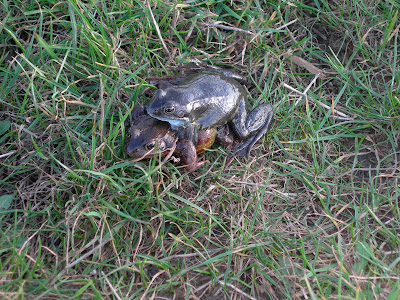 |
Bee Sculpture at Eden Project, Cornwall, UK
Eden Project
(A great place to learn about the biodiversity of our amazing planet) |
Please
note, this article is relevant mostly to Europe (including the UK). Posts about
bees in other countries will follow.
“The plan to ban Cruiser follows two studies earlier this
year, in the UK and France, which found evidence that neonicotinoids contain
chemicals that disorientate bees and prevent them from finding their way back
to hives, causing colony collapse disorder”
Previously on the 3rd June 2012,
another article in the Farmers Weekly -
Banning
Pesticides Will Not Reverse Bee Decline again by Case, reveals that Dominic Dyer, Chief Executive of
Crop Protection Association appears to have evidence to the contrary. Dyer suggests that:
"Most experts agree that
the decline in bee populations is down to the Varroa mite and other parasitic
diseases, combined with the problems associated with habitat loss, colony
stress and climate change,”
It is clear then, that the argument within the
scientific world, soldiers on, as do our bees. The views all appear to be valid, yet there is still not a
definitive answer as to what needs to be done.
The scientist will undoubtedly carry on debating
over the reasons surrounding the demise of these wonderful little
creatures. In the meantime, here
are some things you can be doing that they do all agree on:
· Stop using pesticides. You will be surprised how quickly the
hoverflies, ladybirds and other predatory creatures take over, once the
chemicals are gone. If you need
help to stop using pesticides, please go to Garden Organic, the UK’s leading
organic growing charity (formerly the Henry Doubleday Society).
· Help a bee in distress. If you find a bee lethargic, still, or
in an unusual place, then offer it a small amount of sugar and water mix. This will give it a boost and help it
to go on its way.
· Provide a good habitat for bees. Leave some areas of your garden/land
messy. Let grass grow tall and see
just how many wildflowers appear in it.
Just a small strip of grass can accommodate a wide variety of wild
flowers over time. Better still -
create a wild meadow area. You
could also make a bee
house or cafe, to give them security in your garden.
· Let some of your herbs and
vegetables flower. Rosemary, chives and thyme,
marjoram/oregano, are just a few that bees love.
· Lobby your local MP to
pull out all the stops, and make sure you sign every petition you can.
· Consider being a beekeeper,
or if not, support your local beekeepers by asking them what you can do to
help. This could be buying their
honey or making donations to help fund the hives. For more information on keeping bees go to The British Beekeepers Association
· Keep a diary of the bees
you see and if you see any nests.
Let any of these organisation know if you see anything unusual.
What are your views on this subject? Are you a beekeeper? Do you try to grow plants that attract
bees? Please comment.

